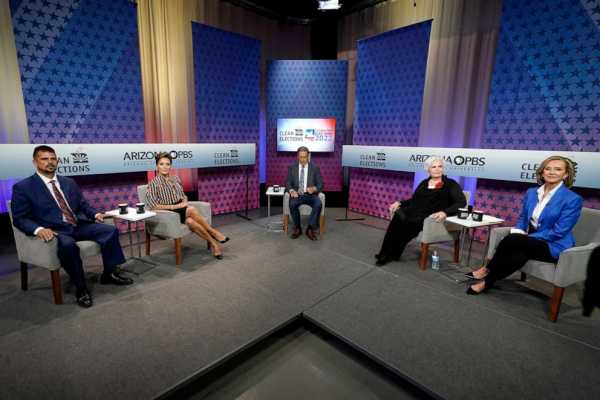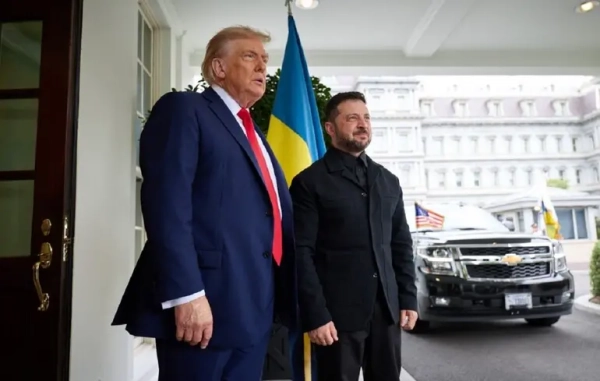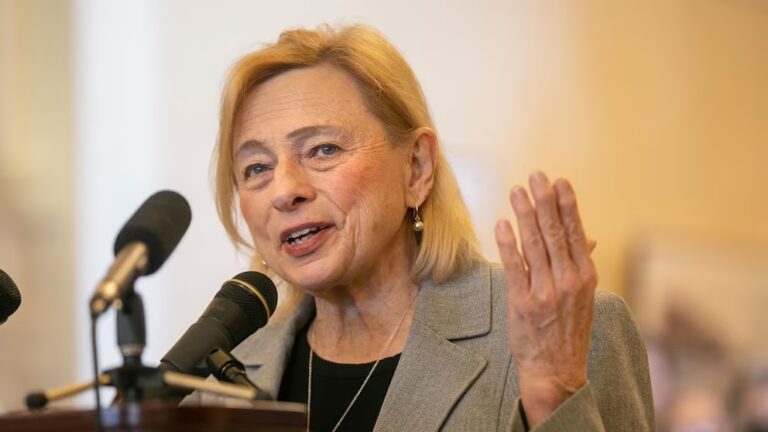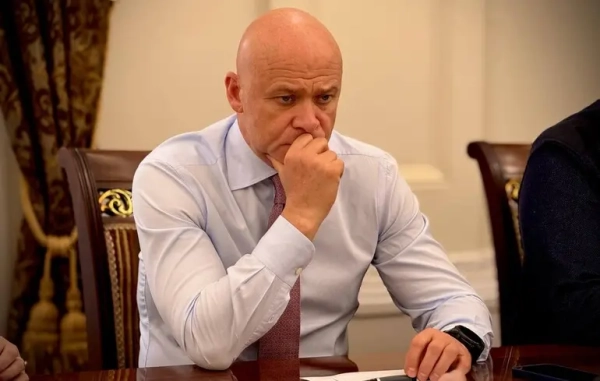With the primaries nearly all finished, it will soon be time for the general election debates — except there may not be all that many debates to tune into.
Across nine key battleground states, five debates for major offices have so far been confirmed for the fall, according to an ABC News count.
A bulk of the resistance is coming from Republican candidates who, they say, wish to debate on their own terms. While that's not a stunning split from cycles past — for example, Trump's team in 2020 tried to make demands of what the final presidential debate covered — it's more than possible that in at least a handful of races pivotal to who holds the balance of power in Washington, such efforts will lead to no formal TV debates at all this fall.
Few swing states have confirmed events on the calendar. In Texas, Republican Gov. Greg Abbott and Democratic challenger Beto O'Rourke will debate at the end of September in the Rio Grande Valley.
In Florida, potential face-offs are anticipated, but not certain. The Sunshine State hosted two gubernatorial debates in 2018 and while there's been no official word if the candidates have agreed to debate this year, host group "Before You Vote" has begun marketing events in the contests for both governor and senator.
From there, the logistics become more contentious.
Here's the breakdown in major battlegrounds.
Arizona
Arizona Republicans Kari Lake and Blake Masters — gubernatorial and Senate hopefuls, respectively — have deployed a campaign strategy to paint their opponents, Arizona Secretary of State Katie Hobbs and Sen. Mark Kelly, as having something to hide in lieu of debate RSVPs, while the Democrats' teams say they're negotiating terms with the Citizens Clean Elections Commission, the leading group in the state for the last 20 years. The commission has asked for RSVPs by the end of the week.
So far, only in the Arizona secretary of state race have both candidates, Republican Mark Finchem and Democrat Adrian Fontes, committed to debating.
Lake formally committed to debating Hobbs on Wed., Oct. 12, after taunting her in a viral Twitter video while Hobbs' team told ABC they "would like to participate" but "are asking them for some format tweaks." Masters has used a similar strategy to Lake, challenging Kelly over Twitter to four debates — but so far only committing himself to one, on Thur., Oct. 6, which Kelly's team says they're also planning to attend "pending some final discussions with the hosts."
The debate for Arizona attorney general is being rescheduled from Aug. 29 to Sept. 28. In response to questions from ABC News, Hamadeh's team said they were working with the clean elections commission to secure a date that worked for both parties, which the commission confirmed. Democrat Kris Mayes committed to the original date weeks ago.

In this June 29, 2022, file photo, Republican candidates for Arizona governor from left to right, Scott Neely, Kari Lake, Paola Tulliani-Zen, and Karrin Taylor Robson, join moderator and host Ted Simons, middle, on the set prior to an Arizona PBS televised debate in Phoenix.Ross D. Franklin/AP, FILE
Pennsylvania
Another state rife with squabbles is Pennsylvania. This month, Dr. Mehmet Oz, the Senate Republican nominee, released a list of five debates he has agreed to attend and called upon his opponent, Democratic Lt. Gov. John Fetterman, to disclose whether or not he will participate. On Tuesday, Oz's campaign said in a statement it would make "concessions" on the debate stage like providing "additional medical personnel he might need to have on standby," prompting Fetterman to accuse his opponent of treating the stroke he suffered in May "a joke."
On Tuesday, Fetterman announced he would not attend a Sep. 6 debate that KDKA, a local Pittsburgh station, had invited both candidates to (Oz accepted the invitation). In a statement, the lieutenant governor did not commit to debating Oz this fall — his team said previously he is "open" to it — but did not rule it out, either.
During the Democratic primary, Fetterman called debates "an important part of history" and that "voters deserve no fewer than three network televised debates."
By comparison, the candidates for Senate in the Keystone State debated twice in 2018.
Meanwhile, Doug Mastriano, the Republican state senator running for Pennsylvania governor, last week proposed rules that would ban news outlets from holding exclusive broadcast rights over debates with his opponent, Democratic Attorney General Josh Shapiro, and would let each candidate choose a moderator. A Shapiro spokesman called the proposal "a stunt" and an excuse to avoid questions by the far-right Mastriano, who has shunned nearly all traditional media while he pivots his campaign message away from the hardline stances he took during the primary — instead, for example, focusing on inflation and economic worries.
No debates have been announced publicly.
Ohio
Ohio Republican Senate nominee JD Vance did not immediately respond to a request for comment on the status of his plans for general election debates. His Democratic challenger Rep. Tim Ryan's campaign has agreed to three televised conversations.
"It's well past time for JD Vance to venture out from his San Francisco mansion, pay Ohio a visit, and actually speak directly to the people he says he wants to represent. And once JD agrees to these three debates, Tim Ryan will debate JD any other time and place," Ryan's campaign director, Dave Chase, told ABC News.

In this Aug. 2, 2022, file photo, a “Vote Here” sign is shown outside a polling location at the Phoenix Art Museum in Phoenix, Arizona.Bloomberg via Getty Images, FILE
Georgia
Another push-and-pull is in Georgia, where Herschel Walker, the Republican Senate candidate, has agreed to take part in a debate on Oct. 14. That agreement comes after pressure from his opponent, Sen. Rev. Raphael Warnock, who accused him of dodging debates in a campaign ad released last month.
However, the debate Walker is proposing to have is not one of the ones that Warnock had already agreed to: Warnock previously accepted invitations to debate in Savannah, Macon and Atlanta in October while Walker hasn't committed to any of those invitations — another layer of discord.
Nevada
Both Nevada's gubernatorial and Senate debates have been set — but the participation from candidates remains unclear. Democratic Gov. Steve Sisolak and his Republican challenger, Clark County Sheriff Joe Lombardo, are set to face-off on Oct. 2.
As for the Senate race, a spokesperson for Republican nominee Adam Laxalt tweeted that while he "looks forward" to debating Democratic incumbent Catherine Cortez Masto, Laxalt's team has "not agreed to any debate invitations at this time and still reviewing all debate options."
A Cortez Masto spokesperson told ABC News that she "has accepted invitations to three debates and … Laxalt has refused to commit to any of them several weeks later."
North Carolina
And Democratic Senate candidate Cheri Beasley accepted the North Carolina Association of Broadcasters' invitation to a debate in October — but there's been no confirmation yet from her opponent.
Republican Senate candidate Ted Budd told ABC News he is open to debating but would not make decisions until after Labor Day. Budd did not debate any of his primary opponents and has made no indication that he would accept a general election debate invitation.

Senate candidate John Fetterman addresses supporters during a rally on Aug. 12, 2022, in Erie, Penn. | Senate candidate Dr. Mehmet Oz speaks during a Republican leadership forum at Newtown Athletic Club on May 11, 2022, in Newtown, Penn.Dustin Franz/AFP via Getty Images | Michael M. Santiago/Getty Images
Michigan
Further disputes persist in the gubernatorial race in Michigan, where Democratic Gov. Gretchen Whitmer and Republican nominee Tudor Dixon are locked in an argument over which dates are best, with Whitmer's team confirming to ABC News that she has accepted two debates: on Oct. 13 in Grand Rapids and on Oct. 25 in Detroit.
Dixon's team pushed back on the dates, however, writing on Twitter that "debates must start BEFORE voting begins, not after as Whitmer is demanding." Dixon further argued that her opponent "wants to hide, but the people deserve answers."
In response to Dixon's comments, Whitmer's campaign told ABC News that "for more than a decade, Michigan has held one to two statewide televised gubernatorial debates in October. Governor Whitmer looks forward to continuing that tradition with debates on October 13th and October 25th so Michiganders have an opportunity to see the clear contrast between the candidates as they make their decisions in this crucial election."
Wisconsin
Neither Democratic Lt. Gov. Mandela Barnes nor Republican incumbent Ron Johnson responded to requests for comments about their debate plans. Johnson previously debated his opponents in the 2016 and 2010 races.

Sen. Raphael Warnock, speaks during a campaign rally in Conyers, Ga., on Aug. 18, 2022. | Republican Senate candidate Herschel Walker speaks at a rally on Sept. 25, 2021, in Perry, Ga.Elijah Nouvelage/Bloomberg via Getty Images | Sean Rayford/Getty Images
The big picture
Last April the national arm of the Republican Party walked away from the Commission on Presidential Debates, cutting ties with the general election debate process and dismantling a bipartisan process 30 years in the making.
The Republican National Committee voted unanimously at the time to leave the group, which they claimed was biased.
"We are going to find newer, better debate platforms to ensure that future nominees are not forced to go through the biased CPD in order to make their case to the American people," RNC Chairwoman Ronna McDaniel said in a statement at the time.
"The CPD's plans for 2024 will be based on fairness, neutrality and a firm commitment to help the American public learn about the candidates and the issues," the CPD responded at the time.
Sourse: abcnews.go.com






